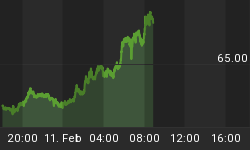This is a quick post this morning because it is rainy and I am grumpy and feel like complaining.
Over the weekend I saw a post from a major market news website. I don't want to name the website, because what they wrote was embarrassingly obtuse. I wouldn't like it if someone cited my blog when I write something obtuse, so I won't link to theirs. Consider it professional courtesy.
Here is what they wrote: "The global bond selloff was blamed largely on fears the European Central Bank and the Bank of Japan will eventually run out of bonds to buy."
At this point, time yourself to see how long it takes you to figure out what's wrong with that sentence. Score yourself with this table:
1 second or less: Congratulations! You have excellent common sense.
2-30 seconds: You have good common sense but maybe spend too much time around markets.
31-2 minutes: You are smart enough to figure this out, but you watch too much financial TV.
Over 2 minutes: You can be a Wall Street economist!
"I don't see anything wrong" : You can write for the blog in question.
I could give an answer key, but in the interest of ranting let me present instead an analogy:
In a certain town there is a grocery store, whose proprietor sells apples for 50 cents. One day, a man walks in, flags down the proprietor, and says, "Hello kind sir. I see you have apples for sale. I would like to buy your apples. You see, I have bought all of the apples in this state, and in the surrounding state. I have bought every apple in this town. In fact, I have bought almost all of this year's harvest. So, I'd like to buy your apples because I have money to buy apples and you have the only apples left."
The proprietor responds, "Great! I will sell them to you for a nickel each!"
Because, you see, since the apple buyer has just about run out of apples to buy, the price of apples should fall. Right? Well, that's exactly the point the blog made about bonds: because investors fear the ECB and BOJ will eventually run out of bonds to buy, bond prices fell. If there are really investors out there who think that when the supply of something declines, its price will fall...please introduce me to them, because I'd like to trade with them.
The fact that global central banks continue to buy bonds is the single, best reason to think that yields may not rise. In normal times, bond yields would be rising right now to reflect the fact that inflation is rising, just about everywhere we measure inflation (maybe not in Japan - core inflation in Japan was rising thanks to more-rapid money growth, but when the BOJ lowered rates into negative territory it lowered money velocity and may have squashed the recent rise). But if central banks are buying every bond they can, then prices are more likely to stay high and yields low - even in places like the US where the central bank is not currently buying bonds, because a paucity of Japanese and European bonds tends to increase the demand for US bonds. The risk to the bulls is actually that central banks stop buying bonds.
Maybe that is the weird reasoning that the blog in question was employing: once there are no bonds, central banks will have to stop buying them. And when the central banks stop buying bonds, their prices should fall. Ergo, when there are no bonds to buy the prices should fall. Sure, that makes sense!
You can follow me @inflation_guy!
Enduring Investments is a registered investment adviser that specializes in solving inflation-related problems. Fill out the contact form at http://www.EnduringInvestments.com/contact and we will send you our latest Quarterly Inflation Outlook. And if you make sure to put your physical mailing address in the "comment" section of the contact form, we will also send you a copy of Michael Ashton's book "Maestro, My Ass!"















